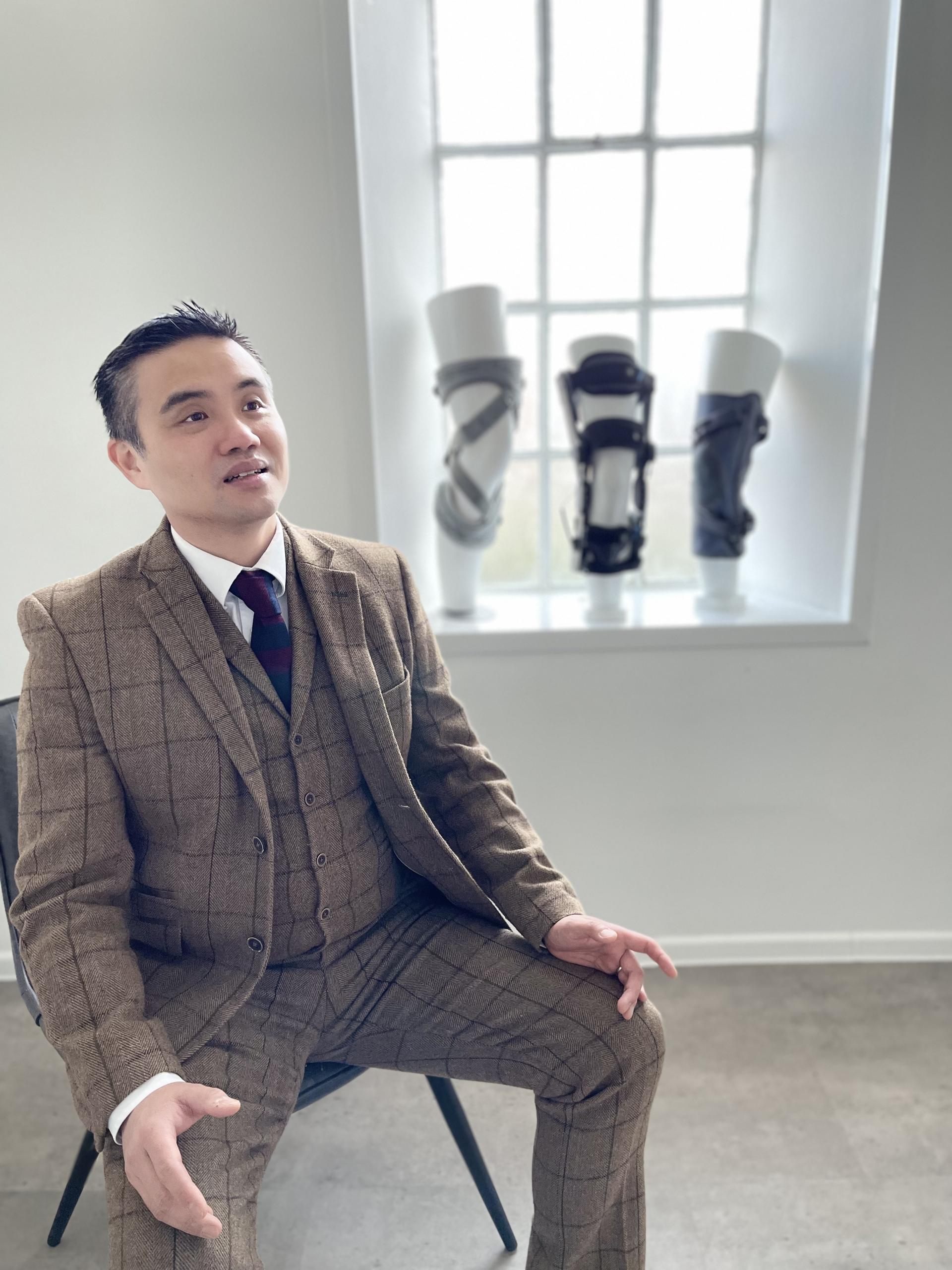Take advantage of AI-optimised medicine to get a Total Knee Replacement, custom-fit to how you move. MSK Doctors, a specialist clinic in London, explains how it all works – and how it can reduce your risk of dislocations, while providing a more natural-feeling knee.

Did you know that with modern AI tools, you can write software, marketing materials, or generate images at lightning speed? That's old hat though.
It's nothing compared to how AI is going to revolutionise medicine, and it's already begun. You can already get Total Knee Replacement (TKR) surgery using super-advanced AI tools that map your personal movement style, to optimize your knee's rotational alignment. Neat, right? You can get all the details at https://mskdoctors.com/treatments/twis-tkr
That's my data source - it comes directly from MSK Doctors in London, a clinic that specialises in advanced and regenerative medicine. The best part though, is that not only are they the top experts, they could also be your experts.
Professor Paul Lee, the founder of MSK Doctors, doesn't believe in waiting lists or GP referrals. You can book your own appointment, at any time, for anything - whether you need diagnosis, consultation, or even treatment. I'm getting ahead of myself though - let's get back on topic, and talk about how AI is changing Total Knee Replacement surgery, for the better.
A new approach known as TWIS or Turn With Intelligent Stability, uses advanced AI techniques to ensure the optimal rotational alignment for each person. The cool thing is, this doesn't just show benefits in the clinical studies - but also in PROMs, an acronym for patient-reported outcome measures.
Not only do the specialists think it's better, but the patients do too, and that's important.
Using AI motion analysis, specialists can generate models of how each individual moves in their daily lives. This data can be used to personalise the TKR surgery, to improve joint stability and flexibility, while reducing tissue trauma from the operation.
While the TWIS-TKR technique is new, the MSK Doctors team has explored several studies on its effects, and highlighted all the key facts we need to know in their new report. They explain it better than I can, so here's an excerpt, “Clinical studies focusing on TWIS-TKR have reported significantly better functional outcomes. This includes improved range of motion, enhanced joint stability, and a more natural knee movement, closely mimicking the kinematics of a healthy knee.”
The short answer is - it's much better. But I assume you want details, so let's get into it.
In studies comparing TWIS-TKR with traditional techniques, researchers found a reduced risk of complications when using TWIS, including a decreased risk of postoperative dislocations.
Remember how we talked about patient-reported outcomes? Well, with the TWIS procedure, patients reported feeling great about their new knee - attributing the improvements to the natural feel and movement of the knee, as well as reduced pain and discomfort after their operation.
So what about after the surgery, what happens next?
Well, conveniently, there's a new guide for that too - and it's all about the recovery process.
MSK Doctors provide specialist advice on immediate post-operative care, physiotherapy, and long-term care, to make sure you've got the best practices right out of the gate.
While individuals are, of course, encouraged to discuss any immediate concerns with their doctor, the report highlights several areas where you can take action to reduce your pain, speed your recovery, or prevent complications.
The post-operative care guide also provides insight into proper nutrition, and the benefits of eating healthy foods while healing from a major surgery. It even lists foods, such as Vitamins C and D, calcium, and proteins that can help you to recover, by promoting tissue repair and optimal bone health.
As the full guide explains, “Recovery from knee surgery is a journey that requires patience, dedication, and careful attention to your surgeon’s and physiotherapist’s advice. By following these tips, embracing a healthy lifestyle, and staying committed to your rehabilitation program, you can achieve a speedy and effective recovery.”
We're not living in the stone age anymore, we're living in the AI age.
Get the best care, using the best techniques - if you want the best results.
It's easy if you know where to look, so check out the free guides from MSK Doctors, or just book an appointment to see Prof. Paul Lee. You don't need a referral, and there's never a waiting list.
The full recovery guide, details about self-booking appointments, and everything else you need is at https://mskdoctors.com/doctors/charlotte-barker/articles/promoting-healing-after-knee-surgery-expert-advice-on-pain-management-diet-and-long-term-care
